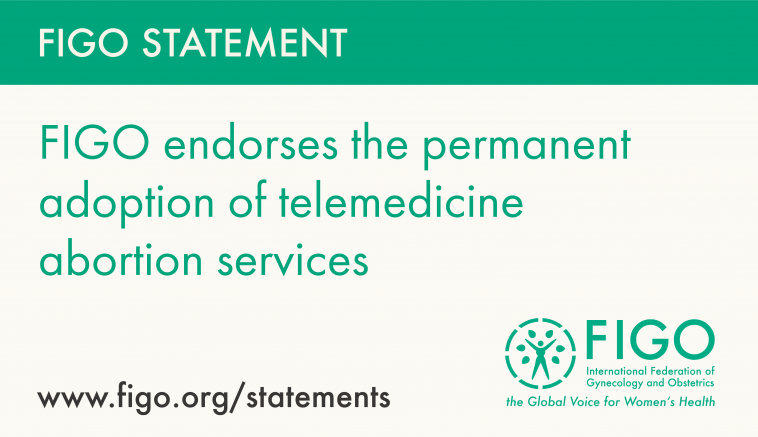FIGO endorses the permanent adoption of telemedicine abortion services

The COVID-19 pandemic has disproportionately impacted women and girls around the world, in part due to temporary restrictions placed on abortion services in some countries. The rapid adoption of technology in health and care services during the COVID-19 pandemic, meanwhile, has enhanced its potential in providing effective and efficient health care, in particular to those in underserved communities. Telemedicine abortion is one such area that has the potential to enable women and girls to self-manage abortion in their homes, through online consultation with health care providers and with medicines delivered to, or collected by, the patient.
We have now published a statement endorsing the permanent adoption of telemedicine abortion services. Abortion is a time sensitive, essential medical service – one that should be provided in accordance with women and girls’ preferences, and with safety, privacy and dignity at the forefront. FIGO demands that all governments remove the barriers that impede access to safe abortion services and ensure universal access to safe abortion for all girls and women – both during COVID-19 and afterwards
FIGO recommendations and commitments
FIGO recommends investment by governments around the world to strengthen the provision of, and access to, telemedicine. This will help to ensure the safe, timely and effective delivery of care to women and girls everywhere, including those seeking abortion services.
FIGO commits to:
- share evidence of the success of telemedicine abortion with our national member societies and as part of our national and global advocacy efforts
- encourage and support national member societies to examine opportunities to implement similar services, in particular in low- and middle-income countries (LMICs)
- continue to advocate for the decriminalisation of abortion in all countries and support global efforts to improve access to safe abortion, free from any stigma and discrimination based on age, location, gender, religion, socioeconomic status, disability, ethnicity, religion or cultural background and other statuses.